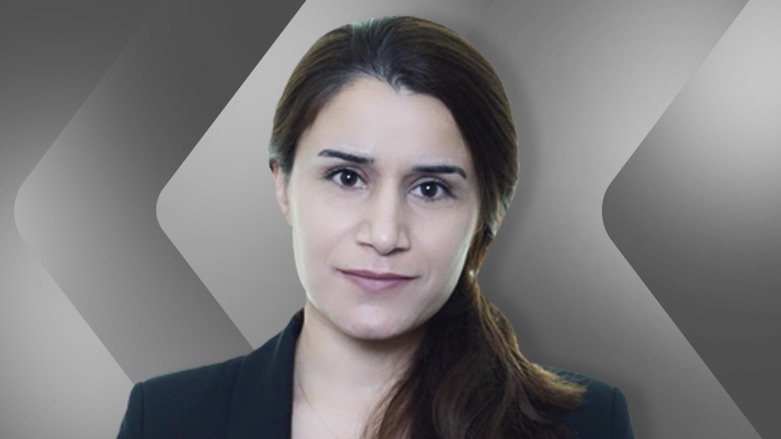Amending Iraq’s constitution is hard, but not impossible

The Iraqi constitution was written and approved in a public referendum at a critical moment of democratic transition in 2005. No one expected that writing and implementing a constitution that satisfies various competing political actors in post-2003 Iraq would be easy. It is a document that is vague in many areas about multiple sensitive matters and key state institutions. Crucial issues such as the distribution of natural resources, disputed territories, and federalism are all left to be regulated through implementing legislation.
Shortly after the approval of the constitution, many voices in Iraq, including some influential leaders, called for constitutional amendments. Those participating in the recent wave of protests across the country have also demanded constitutional reform and various changes, including to the political system itself.
The parliament has responded to protesters by issuing a number of decisions, most of which bypass the constitution. For example, the parliament has no mandate to repeal provincial councils; the issue requires changing the constitution which cannot be done through legislation, let alone decrees.
Moreover, parliament has established a committee to propose necessary amendments. In reality, this body can only come up with such recommendations within four months, so the difficult part will be to successfully push any forthcoming amendments through parliament and a subsequent public referendum without being vetoed by two-thirds of voters in three provinces. These are requirements established in article 142 which are extremely difficult, though not impossible, to achieve in practice.
There are also real concerns that current calls for constitutional amendment threaten the constitutional powers of the Kurdistan Region in particular, given the events that followed the 2017 Kurdistan independence referendum. In a recent statement, the prime minister of the Kurdistan Region rejected any attempt to take away constitutional powers of the region through amendments. In practice, though, three Kurdish provinces could block any amendment that endangers the region’s power, as described above. In theory, there is no constitutional guarantee that the proposed amendments won’t decrease powers of the region, especially taking into account that Article 126, which provides general rules for constitutional amendment, has been suspended until the amendments stipulated in this article (142) have been decided upon.
Article 126 provides that any amendment requires the approval of two-thirds of parliament members and then that of the people in a general referendum. This makes even harder for any amendment that “takes away from the powers of regions that are not within the exclusive powers of the federal authorities” to be adopted. Such amendments require the approval of both the legislative authority of the concerned region and the majority of its citizens through referendum.
In the case that a proposed amendment that would limit or eliminate constitutional powers of the Kurdistan Region is approved by the parliament and then by a public referendum, the question then becomes whether or not the federal supreme court would block such an amendment. In a point of fact, there is a ruling from the court issued in 2017 which states that any amendment to the constitution needs to be passed in accordance with Article 142, and when this article is exhausted then the general rules of amendment in Article 126 would then apply.
It is not the constitution itself that is an obstacle to tackling endemic corruption and improving services, it is the failure of the politicians and parties to implement the constitution. The fact is that, over the past 15 years, lawmakers have failed to pass necessary implementing legislation, and some fifteen articles have yet to be implemented. Even some parliamentarians have proudly and publicly admitted that they have prevented implementation of certain articles such as Article 140, which addresses disputed territories that could have solved and resolved major issues related to longstanding constitutional disputes between the federal government and the Kurdistan Regional Government (KRG). Successive administrations have deliberately and selectively neglected and adapted constitutional articles and have instead called for constitutional amendments that are in their interest.
While the anger and demands of protesters are perfectly understandable, amending the constitution and changing the political system alone won’t provide a meaningful solution. Thus, the fundamental problem is not the constitution, it is its implementation and interpretation. A practical solution would be to pass necessary implementing legislation that elaborates constitutional articles and prevents erroneous or self-serving interpretations.
There are concerns that the article addressing constitutional amendment, 126, itself might be changed in a way that makes future constitutional amendments easier to achieve. Thus, what is being called amendments of the Iraqi constitution seems actually to be “constitutional dismemberment” aimed at altering the structure and core features of the constitution, including federalism. They are meant to unmake the constitution rather than improving, elaborating, and advancing the meaning of the constitution as it is presently understood.
Majida S. Ismael holds a Ph.D. in Public Law/Constitutional Law from the University of Liverpool, England.
The views expressed in this article are those of the author and do not necessarily reflect the position of Kurdistan 24.
Editing by John J. Catherine
